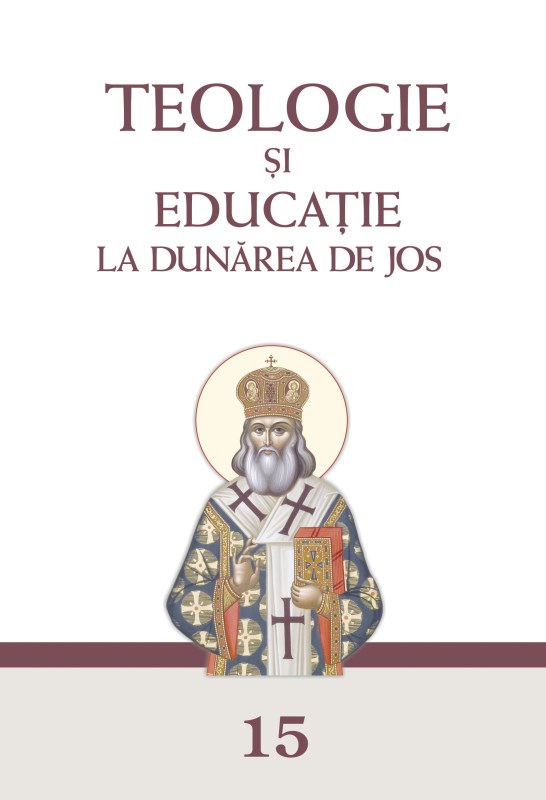Edictele împăraților romani cu privire la învățământ în secolele IV-V
The edicts of the Roman emperors on education in the 4th-5th centuries
Author(s): Cristian GaguSubject(s): Christian Theology and Religion, Theology and Religion
Published by: EDITURA ARHIEPISCOPIEI DUNĂRII DE JOS
Keywords: Byzantium; Roman/Byzantine emperors; education; teachers; students; edicts; Theodosian Codex;
Summary/Abstract: In his work the Byzantine Civilization the reputed Byzantinologist French Louis Bréhier showed that in Byzantium "there was a well-established tradition as a bazileu to look after the education", stressing the fact that education was a constant concern for the Byzantines bazileii, who legislated in this area, financially supported its deployment, founded, reorganized or abolished Universities and schools. The beginning of this tradition goes back to the 4th - 5th centuries, an extremely important period especially for the education system of the Roman Empire, for the culture in general as well, as this was the era when "the wild olive tree" of pagan culture was transformed into "an olive tree for the garden" with the graft of evangelical teaching, giving rise to the humanist foundations of Christian culture which was to develop the intellectual and cultural life of the Byzantine Empire. The prerequisites for carrying out this process had emerged as early as the third century, when education has entered a stage of development unprecedented in schools, in villages, to universities in the province and the metropolitan ones on one side, and the Christians, on another side, began to show an increasingly favorable attitude studying classical pagan culture, which they sought to put on the service of the true faith. This process depended on and was favoured, moreover, of edicts on education promulgated by the Roman emperors centuries IV-V, codified in Codex Theodosian under the headlines De medicis et professoribus (13.3), De studiis liberalibus urbis romae et constantinopolitanae (14.9) şi De professoribus, qui in urbe constantinopolitana docentes ex lege meruerint comitivam (6.21). Through these edictsthe Roman emperors sought and managed to achieve, as in other fields or professions, an extremely precise legal regulation of the status of teachers and students whose first and main cause was a need to support the imperial administrative apparatus which was extremely dense and bureaucratic, with well trained officials. For this purpose, like doctors serving military and imperial administration, teachers received a number of benefits, consisting in exemption from taxes and duties, as well as the provision of municipal tasks , on the one hand and, on the other in a salary from the state budget. It may be added here the influence some great teachers of the time had at the Court, such as Ausonius, who taught literature and rhetoric to the future Emperor Gratian of the West, who apparently inspired the edict by which they were awarded stipends and was regulated the status of teachers in Gaul. The second reason that led to the promulgation of quite a number of important edicts for education was the tendency of exercising tight control over the king of all the professions and areas of social, political and economic empire, including that of the teachers and education. Following the promulgation of these edicts, the thriving situation of education in the 3rd Century continued to perpetuate and even increase and evolve, culminating in the reorganization of the University of Constantinople, despite the syncope created by the edict the emperor Julian the Apostate, as part of his desperate program to revive the old pagan religion by any means, banned the Christian teachers to teach in state schools and the Christian youth were indirectly restricted the access to education, edict that disrupted for a short period of time the favourable situation of education in the Roman Empire. In fact, the edict of Julian the Apostate and that through which Theodosius II reorganized the University of Constantinople marked a milestone for education in the Roman Empire, namely the awareness of the importance of education in supporting and disseminating the teachings and practices of a religion or another, pagan in the first case, Christian in the second stage that ended with the victory of the two parts as protected by the closure of pagan University in Athens by Emperor Justinian I in 529.
Journal: TEOLOGIE ȘI EDUCAȚIE LA DUNĂREA DE JOS
- Issue Year: XV/2017
- Issue No: 15
- Page Range: 145-176
- Page Count: 22
- Language: Romanian

